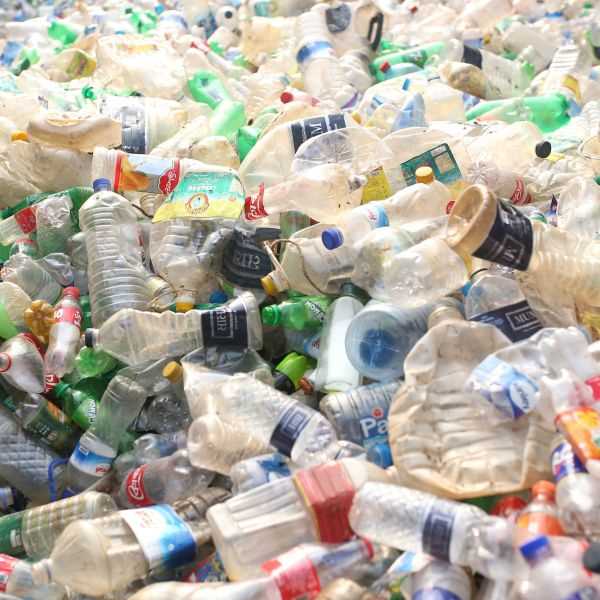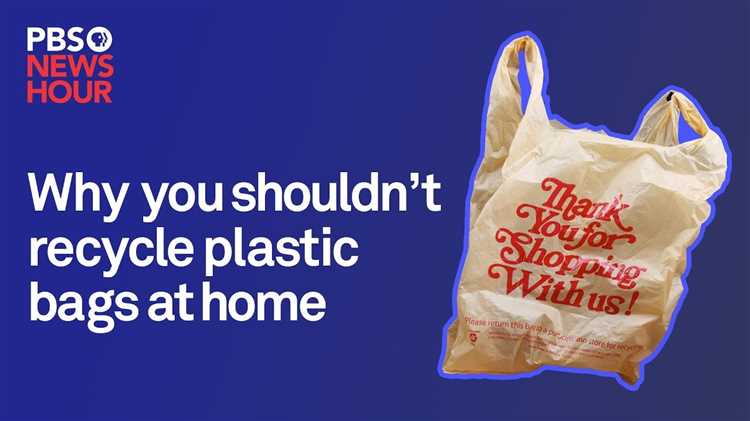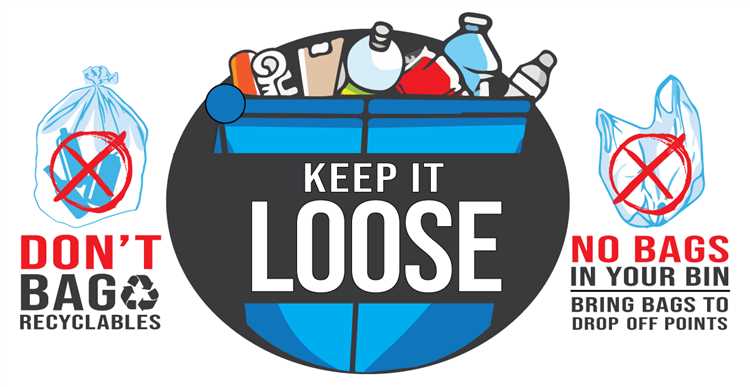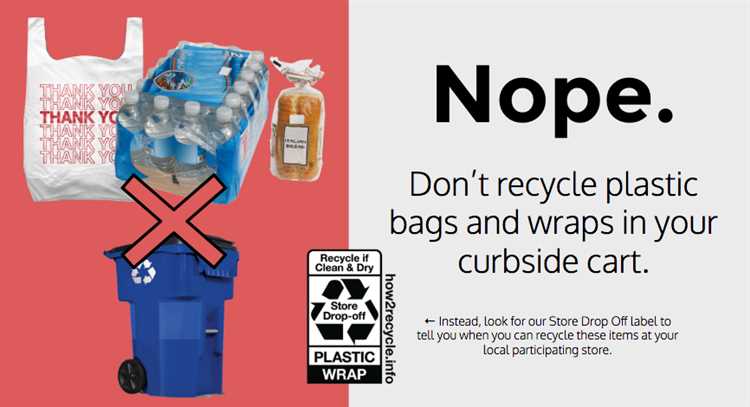
Plastic bags have become an integral part of our daily lives. They are used for carrying groceries, storing items, and packaging products. However, their convenience comes at a great cost to the environment.
Plastic bags are made from non-renewable resources such as oil and natural gas. The production of plastic bags requires significant amounts of energy, contributing to greenhouse gas emissions and exacerbating climate change.
When plastic bags are not recycled, they end up in landfills, where they take hundreds of years to decompose. As they break down, they release harmful chemicals into the soil and water, polluting our ecosystems and endangering wildlife.
Furthermore, plastic bags pose a serious threat to marine life. Thousands of plastic bags find their way into the oceans every year, harming marine animals that mistake them for food or become entangled in them. These bags can suffocate or starve marine creatures, disrupt their habitats, and even cause their extinction.
To combat these environmental issues, it is crucial that we recycle plastic bags. Recycling reduces the demand for new plastic production, conserves resources, and minimizes pollution. By properly disposing of plastic bags, we can protect our planet’s fragile ecosystems and ensure a sustainable future for generations to come.
- The Environmental Impact of Not Recycling Plastic Bags
- Increasing Pollution
- Threat to Wildlife
- Increase in Landfill Waste
- Marine Pollution and Threat to Wildlife
- The Great Pacific Garbage Patch
- Addressing the Issue
- Energy Consumption and Greenhouse Gas Emissions
- Depletion of Natural Resources
- Effects on Biodiversity
- Sustainable Alternatives
- Economic Costs of Plastic Bag Waste
- Importance of Recycling Plastic Bags
- 1. Environmental Impact
- 2. Marine Life Preservation
- Q&A:
- Why is it important to recycle plastic bags?
- What happens if we don’t recycle plastic bags?
- Can plastic bags be recycled?
- What are some alternatives to using plastic bags?
The Environmental Impact of Not Recycling Plastic Bags
Plastic bags have become a ubiquitous part of our lives. They are used for carrying groceries, packaging products, and even as trash bags. However, the convenience of plastic bags comes at a significant cost to our environment.
Increasing Pollution
When plastic bags are not recycled, they often end up in landfills or find their way into our oceans and waterways. Plastic bags take hundreds of years to break down, and during that time, they release harmful toxins into the soil and water. This pollution can have devastating effects on plants, animals, and marine life.
In landfills, plastic bags can take up valuable space and create unsightly litter. They can also clog drainage systems and contribute to flooding during heavy rainfall. This pollution not only harms the natural environment but also impacts human health and well-being.
Threat to Wildlife
Plastic bags pose a significant threat to wildlife, especially marine animals. Sea turtles, dolphins, seabirds, and other marine creatures can mistake plastic bags for food. When ingested, the bags can cause suffocation, internal injuries, and even death. Plastic bags can also become entangled in animals, leading to serious injuries or preventing them from swimming and hunting for food.
The accumulation of plastic bags in the ocean also impacts the entire marine ecosystem. Microplastics, which are tiny plastic particles broken down from larger items such as bags, can be ingested by small marine organisms. These microplastics can then make their way up the food chain, ultimately affecting larger fish and even humans who consume seafood.
Conclusion: The environmental impact of not recycling plastic bags is far-reaching and detrimental. It not only contributes to pollution and litter but also poses a serious threat to wildlife and ecosystems. By recycling plastic bags, we can help reduce the negative effects on our planet and work towards a more sustainable future.
Increase in Landfill Waste
Plastic bags are a significant contributor to the increasing amount of waste in landfills. When plastic bags are not recycled, they end up in landfills where they take hundreds of years to decompose. Due to their lightweight and non-biodegradable nature, plastic bags often get blown away by the wind, causing an even bigger problem.
In landfills, plastic bags can cause numerous issues. They can clog up machinery at recycling facilities, leading to disruptions and additional costs. The bags can also pose a threat to wildlife that may mistake them for food or become entangled in them.
Plastic bags not only take up valuable space in landfills but also contribute to the emission of harmful greenhouse gases. As the bags break down, they release methane, a potent greenhouse gas that contributes to climate change.
To mitigate the increase in landfill waste, it is crucial to reduce the consumption of plastic bags and implement recycling programs. By opting for reusable bags or biodegradable alternatives, individuals can greatly reduce the amount of waste ending up in landfills and help protect the environment.
Marine Pollution and Threat to Wildlife

The improper disposal of plastic bags, especially in coastal areas, is a major contributor to marine pollution. When plastic bags end up in the ocean, they break down into microplastics over time, polluting the water and harming marine life. Marine animals often mistake plastic bags for food, which can lead to blockages in their digestive systems, starvation, and ultimately death.
Plastic bags can also entangle marine creatures such as sea turtles, seals, and birds. These animals can become trapped in the bags, preventing them from swimming and foraging for food. As a result, they may suffer from injuries, infections, or suffocation.
The effects of plastic bag pollution on marine ecosystems are far-reaching. Microplastics can enter the food chain when marine organisms consume them, and ultimately, these pollutants can make their way back to humans when we consume seafood.
The Great Pacific Garbage Patch
One alarming example of the consequences of plastic bag pollution is the Great Pacific Garbage Patch. Located in the North Pacific Ocean, this area has accumulated a large concentration of marine debris, including plastic bags. The plastic waste in this patch is estimated to cover an area of over 1.6 million square kilometers, roughly twice the size of Texas.
The Great Pacific Garbage Patch poses a significant threat to marine life in the area. Animals are not only impacted by ingesting or getting entangled in plastic bags, but they also face other hazards associated with the accumulation of plastic waste. For example, the floating trash can block sunlight from reaching the water, affecting marine plants’ ability to photosynthesize.
Addressing the Issue
To mitigate the harmful effects of plastic bag pollution on marine life, it is crucial to reduce the use of plastic bags and implement proper recycling programs. Encouraging the use of reusable bags and promoting education about the consequences of plastic pollution can also make a significant difference. Additionally, supporting policies that ban or restrict the use of plastic bags can help reduce their negative impact on the environment.
Remember: Every plastic bag that is not recycled or properly disposed of has the potential to harm marine life and contribute to the growing problem of marine pollution. It is essential to take action and make sustainable choices to protect our oceans and the wildlife that inhabits them.
Energy Consumption and Greenhouse Gas Emissions
When plastic bags are not properly recycled, the energy consumption and greenhouse gas emissions associated with their production and disposal are significant. Plastic bags are made from non-renewable resources such as petroleum and natural gas. Extracting and processing these resources require large amounts of energy, contributing to greenhouse gas emissions.
In addition to the energy-intensive production process, plastic bags also contribute to greenhouse gas emissions when they end up in landfills. When plastic bags are buried in landfills, they undergo anaerobic decomposition, which produces methane gas. Methane is a potent greenhouse gas that is even more harmful to the environment than carbon dioxide.
In fact, according to a study conducted by the Environmental Protection Agency (EPA), plastic bags in landfills can produce up to 40 times more greenhouse gas emissions compared to if they were recycled. This is because when plastic bags are recycled, they can be turned into new plastic products, reducing the need for virgin materials and the associated energy consumption and greenhouse gas emissions.
By not recycling plastic bags, we are not only wasting valuable resources but also contributing to global warming and climate change. It is estimated that the production and disposal of plastic bags contribute significantly to the overall carbon footprint of the plastics industry.
Therefore, it is crucial that we adopt sustainable practices and actively participate in the recycling of plastic bags. By doing so, we can reduce energy consumption, minimize greenhouse gas emissions, and move towards a more sustainable future.
Depletion of Natural Resources

One of the major consequences of not recycling plastic bags is the depletion of natural resources. Plastic is made from petroleum, a non-renewable resource, which means it cannot be replenished once it is used up. The production of plastic bags requires the extraction and refinement of oil, contributing to environmental damage and the depletion of fossil fuel reserves.
When plastic bags are not recycled, they end up in landfills or, even worse, in the ocean. As plastic bags break down in landfills, they release harmful chemicals and greenhouse gases into the atmosphere. These pollutants can contribute to air pollution and climate change, exacerbating the depletion of natural resources and further harming the environment.
In addition to the environmental impact, the depletion of natural resources has economic implications. As petroleum reserves diminish, the cost of extracting and refining oil increases. This leads to higher energy costs, affecting industries and consumers alike. Moreover, the reliance on non-renewable resources like oil makes economies vulnerable to price fluctuations and geopolitical conflicts.
Effects on Biodiversity
The depletion of natural resources caused by plastic bags also has a detrimental effect on biodiversity. Oil extraction and production processes often involve the destruction of habitats and the displacement of wildlife. As habitats are destroyed, many species struggle to survive or are driven to extinction. This loss of biodiversity disrupts ecosystems and can have cascading effects throughout the food chain.
Sustainable Alternatives
To mitigate the depletion of natural resources caused by plastic bags, it is crucial to seek sustainable alternatives. One such alternative is the use of reusable bags made from materials like cotton or jute. These bags can be used multiple times, reducing the demand for plastic bags and the need for petroleum extraction.
- Another approach is the promotion of biodegradable or compostable plastic bags. These bags are designed to break down more easily in the environment, reducing their impact on natural resources.
- Furthermore, governments and businesses can implement policies to encourage recycling and reduce plastic bag usage. This can include initiatives such as plastic bag taxes or bans, as well as the establishment of recycling infrastructure.
By taking such measures, we can help minimize the depletion of natural resources and protect the environment for future generations.
Economic Costs of Plastic Bag Waste

Plastic bag waste has significant economic costs that are often overlooked. When plastic bags are not properly recycled, they can end up in landfills or contaminate our natural environment, leading to a variety of negative impacts.
One of the main economic costs of plastic bag waste is the expense of waste management. Properly disposing of plastic bags requires collection, transportation, and processing, all of which can be expensive for local governments and waste management facilities. These costs are ultimately passed on to taxpayers and consumers in the form of higher waste management fees and taxes.
| Costs of Plastic Bag Waste: | Impact: |
|---|---|
| Environmental Cleanup | Plastic bags that end up in the environment need to be cleaned up, which can be costly. This includes efforts to remove bags from waterways, parks, and other natural areas. |
| Damage to Wildlife | Plastic bags can harm wildlife when they are mistaken for food or become entangled. This can lead to injuries or death of animals, which can have ecological and economic consequences. |
| Clogged Drainage Systems | Plastic bags that are improperly disposed of can clog drainage systems, leading to flooding and damage to infrastructure. Repairing and maintaining drainage systems can be costly for local communities. |
| Reduced Tourism | Areas that are littered with plastic bags can deter tourists and visitors, leading to a decline in tourism revenue. This can have a negative impact on the local economy and job market. |
Furthermore, the production of plastic bags itself has economic consequences. Plastic bags are made from non-renewable resources such as oil or natural gas, which have their own costs and environmental impacts. The extraction and processing of these resources can lead to pollution and habitat destruction, further magnifying the economic costs of plastic bag waste.
Considering the numerous economic costs associated with plastic bag waste, it becomes clear that proper recycling and reduction of plastic bag use is not only beneficial for the environment but also for the economy as a whole. By implementing measures to reduce plastic bag consumption and increasing recycling efforts, we can mitigate these costs and create a more sustainable and prosperous future.
Importance of Recycling Plastic Bags
Plastic bags are widely used in our daily lives for shopping, packaging, and various other purposes. However, if they are not properly recycled, they can have a negative impact on our environment and society.
Recycling plastic bags is important for several reasons:
1. Environmental Impact
Plastic bags are made from non-renewable resources such as oil and gas. If they are not recycled, these resources are wasted and contribute to the depletion of natural resources. Additionally, plastic bags take hundreds of years to decompose in landfills, which leads to soil and water pollution. Recycling plastic bags help reduce the demand for new bags and lessen the environmental burden.
2. Marine Life Preservation
When not properly recycled, plastic bags often end up in oceans and other water bodies. Marine animals such as turtles, dolphins, and seabirds mistake plastic bags for food and can suffer from ingestion or entanglement. By recycling plastic bags, we can help prevent these harmful effects on marine life and maintain the delicate balance of our ecosystems.
Below is a table highlighting the impact of not recycling plastic bags:
| Impact | Description |
|---|---|
| Increase in landfill waste | Plastic bags take up valuable space in landfills that could be used for other waste. |
| Resource depletion | Non-renewable resources used to produce plastic bags are wasted if not recycled. |
| Pollution | Plastic bags can end up in rivers and oceans, polluting these ecosystems and harming marine life. |
| Energy consumption | Producing new plastic bags requires energy, contributing to carbon emissions and climate change. |
By understanding the importance of recycling plastic bags, we can take action to reduce their negative impact on the environment and work towards a more sustainable future.
Q&A:
Why is it important to recycle plastic bags?
It is important to recycle plastic bags because they are made from non-renewable resources and take hundreds of years to decompose. By recycling them, we can reduce the amount of waste in landfills and help protect the environment.
What happens if we don’t recycle plastic bags?
If we don’t recycle plastic bags, they end up in landfills where they remain for hundreds of years. They can also make their way into bodies of water, causing pollution and harm to marine life. Additionally, the production of new plastic bags requires the extraction of fossil fuels, contributing to climate change.
Can plastic bags be recycled?
Yes, plastic bags can be recycled. Many grocery stores have collection bins where you can drop off your used plastic bags for recycling. The bags are then sent to facilities where they are processed and turned into new plastic products, such as decking, playground equipment, and even new plastic bags.
What are some alternatives to using plastic bags?
There are several alternatives to using plastic bags. One option is to use reusable cloth bags made from materials such as cotton or canvas. These bags can be washed and used again, reducing the need for single-use plastic bags. Another alternative is to use paper bags, although they also have an environmental impact due to their production process. Some stores also offer biodegradable bags made from plant-based materials.